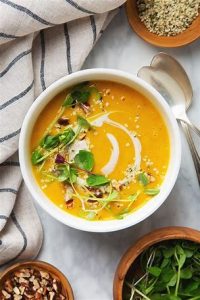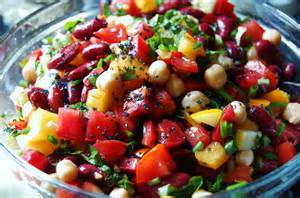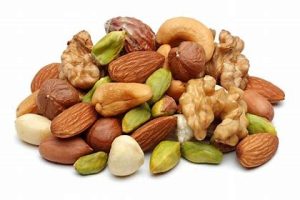Many people think that they are being healthy having a Vegan January, but if your body isn’t suited to it, or you don’t eat in a balanced way, then you could make yourself ill.
Those that have sensitive digestive systems may struggle with lots of pulses and grains, and some people have a genetic make up that makes digestion of these foods tricky. See how you feel when you eat more grains and pulses and nuts? Do you feel better or worse?
Being vegan doesn’t reduce amounts of sugar, caffeine, refined carbs, or alcohol, so keeping these low, are important when trying to be healthy.
For convenience, some vegans may find they are eating more fake vegan food – meatless processed meals are not good for you. Take the time to cook from scratch using tofu, tempeh and pulses.
When you stop eating meat and dairy, you are at risk of a deficiency of iron and B12, as well as omega 3 fats, so it is important that vegans eat more of these foods below, as well as supplement with iron bisglycinate (more easily absorbed), B12 (subliquinal is best) and vegan omega 3’s
- Foods which include B12 include tofu, seaweeds, brewers and nutritional yeast
- Veg sources of iron are much lower, but vegetarian iron-rich foods are green leafy vegetables, prunes, dates, molasses, very dark chocolate, nuts, seeds and lentils, which are absorbed better if they are eaten with foods high in vitamin C such as raw pepper, watercress and rocket, and berries.
- Boost essential fats by eating ground flaxseeds, cold pressed flaxseed oil, nuts, pumpkin and sesame seeds, avocado and chai seeds, and vegan Omega supplement
- Wholegrains are in brown pasta, brown rice, course oats. Quinoa is particularly useful as it also contains some protein.
To increase your protein eat more pulses such as beans, chickpeas and lentils, nuts and seeds, along with Tofu and Tempeh. You will need 3 portions of vegetarian protein per day.
Eat a wide range of colourful fruits and vegetables, especially dark green ones such as spinach, watercress, rocket and kales; and yellow and orange ones such as peppers, apricots, carrots and sweet potatoes, and purple ones such as blueberries and red onions.
Find out more sam@whatseatingyou.co.uk



